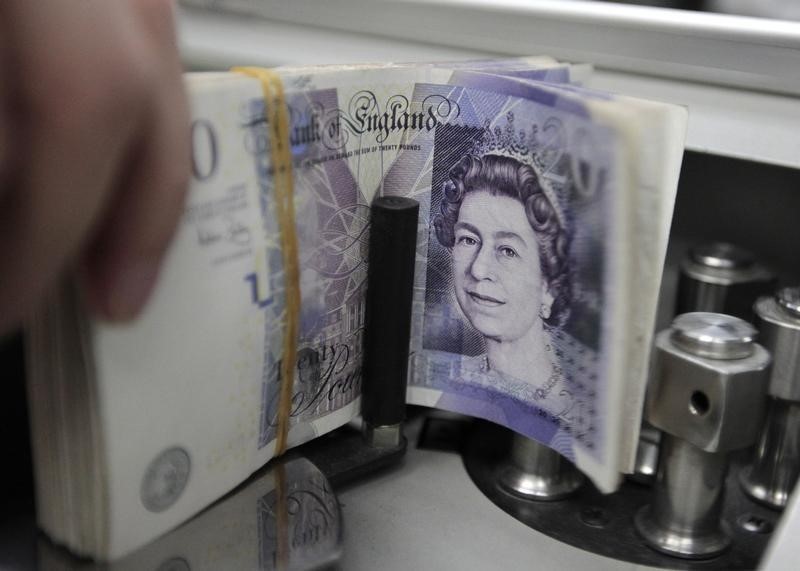Investing.com - The pound extended a rally on Thursday after the Bank of England kept monetary policy on hold and hiked growth forecasts after jumping earlier when the British government lost the Brexit case in the high court.
GBP/USD hit highs of 1.2494, the strongest level since October 7 and was last at 1.2484.
The monetary policy committee of the BoE voted to leave interest rates on hold, at the current record low of 0.25%.
The MPC also left the quantitative easing program unchanged, at £425 billion.
Both decisions were unanimous, with the committee voting nine to zero.
The bank raised its growth forecasts for this year and next, but cut its 2018 growth forecast.
The BoE now expects economic growth of 2.2% in 2016, up from 2% previously and growth of 1.4% in 2017, almost double the 0.8% it initially expected.
But it expects growth to slow to 1.5% in 2018, down from 1.8%.
The bank also expects a sharp increase in inflation largely due to the slump in sterling, forecasting an annual rate of inflation of 2.7% in a year’s time, up from 2.0% in August.
It believes inflation will peak at 2.83% in the second quarter of 2018.
In its statement, the bank said the economy has performed more strongly than it expected in August, but added that there are limits to the extent to which above-target inflation can be tolerated.
“Monetary policy can respond, in either direction, to changes to the economic outlook as they unfold to ensure a sustainable return of inflation to the 2% target,” the statement said.
BoE Governor Mark Carney was to hold a press conference later Thursday.
The pound strengthened earlier Thursday after the UK high court ruled that the government does not have the authority to trigger Article 50 of the Lisbon Treaty to start the UK’s exit from the EU without a parliamentary vote.
Sterling received an additional boost after data showing that activity in Britain’s service sector accelerated to the fastest since January last month, but the data also pointed to a marked build up in inflationary pressures.
Financial data company Markit said its services purchasing managers’ index rose to 54.5 in October from September’s 52.6.
Economists had expected the index to tick down to 52.4.
Similar surveys of the manufacturing and construction sectors earlier this week also pointed to mounting inflation pressures, indicating that increases faced by companies will soon feed through into prices paid by consumers.
The pound was also sharply higher against the euro, with EUR/GBP slumping 1.68% to 0.8868.
